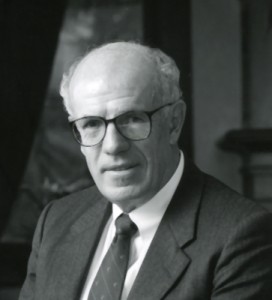Related Research Articles
Palliative care is an interdisciplinary medical caregiving approach aimed at optimizing quality of life and mitigating suffering among people with serious, complex, and often terminal illnesses. Within the published literature, many definitions of palliative care exist. The World Health Organization (WHO) describes palliative care as "an approach that improves the quality of life of patients and their families facing the problems associated with life-threatening illness, through the prevention and relief of suffering by means of early identification and impeccable assessment and treatment of pain, illnesses including other problems whether physical, psychosocial, and spiritual". In the past, palliative care was a disease specific approach, but today the WHO takes a broader patient-centered approach that suggests that the principles of palliative care should be applied as early as possible to any chronic and ultimately fatal illness. This shift was important because if a disease-oriented approach is followed, the needs and preferences of the patient are not fully met and aspects of care, such as pain, quality of life, and social support, as well as spiritual and emotional needs, fail to be addressed. Rather, a patient-centered model prioritizes relief of suffering and tailors care to increase the quality of life for terminally ill patients.

James Marion Sims was an American physician in the field of surgery. His most famous work was the development of a surgical technique for the repair of vesicovaginal fistula, a severe complication of obstructed childbirth. He is also remembered for inventing the Sims speculum, Sims sigmoid catheter, and the Sims position. Against significant opposition, he established, in New York, the first hospital specifically for women. He was forced out of the hospital he founded because he insisted on treating cancer patients; he played a small role in the creation of the nation's first cancer hospital, which opened after his death.

Stanley Alan Plotkin is an American physician who works as a consultant to vaccine manufacturers, such as Sanofi Pasteur, as well as biotechnology firms, non-profits and governments. In the 1960s, he played a pivotal role in discovery of a vaccine against rubella virus while working at Wistar Institute in Philadelphia. Plotkin was a member of Wistar’s active research faculty from 1960 to 1991. Today, in addition to his emeritus appointment at Wistar, he is emeritus professor of Pediatrics at the University of Pennsylvania. His book, Vaccines, is the standard reference on the subject. He is an editor with Clinical and Vaccine Immunology, which is published by the American Society for Microbiology in Washington, D.C.
Joseph J. Fins, M.D., D. Hum. Litt., M.A.C.P., F.R.C.P. is an American physician and medical ethicist. He is chief of the Division of Medical Ethics at New York Presbyterian Hospital and Weill Cornell Medical College, where he serves as The E. William Davis Jr., M.D. Professor of Medical Ethics, and Professor of Medicine, Professor of Public Health, and Professor of Medicine in Psychiatry. Fins is also Director of Medical Ethics and an attending physician at New York Presbyterian Hospital-Weill Cornell Medical Center. Fins is also a member of the adjunct faculty of Rockefeller University and has served as Associate for Medicine at The Hastings Center. He is the Solomon Center Distinguished Scholar in Medicine, Bioethics and the Law and a Visiting Professor of Law at Yale Law School. He was appointed by President Bill Clinton to The White House Commission on Complementary and Alternative Medicine Policy and currently serves on The New York State Task Force on Life and the Law by gubernatorial appointment.

Montefiore Medical Center is a premier academic medical center and the primary teaching hospital of the Albert Einstein College of Medicine in the Bronx, New York City. Its main campus, the Henry and Lucy Moses Division, is located in the Norwood section of the northern Bronx. It is named for Moses Montefiore and is one of the 50 largest employers in New York. In 2020, Montefiore was ranked No. 6 New York City metropolitan area hospitals by U.S. News & World Report. Adjacent to the main hospital is the Children's Hospital at Montefiore, which serves infants, children, teens, and young adults aged 0–21.

A Cimino fistula, also Cimino-Brescia fistula, surgically created arteriovenous fistula and arteriovenous fistula, is a type of vascular access for hemodialysis. It is typically a surgically created connection between an artery and a vein in the arm, although there have been acquired arteriovenous fistulas which do not in fact demonstrate connection to an artery.

Ira Robert Byock is an American physician, author, and advocate for palliative care. He is founder and chief medical officer of the Providence St. Joseph Health Institute for Human Caring in Torrance, California, and holds appointments as active emeritus professor of medicine and professor of community health and family medicine at the Geisel School of Medicine at Dartmouth College. He was director of palliative medicine at Dartmouth–Hitchcock Medical Center, from 2003–14, and associate director for patient and family-centered care at the affiliated Norris-Cotton Cancer Center.
William S. Breitbart, FAPM, is an American psychiatrist in Psychosomatic Medicine, Psycho-oncology, and Palliative Care. He is the Jimmie C Holland Chair in Psychiatric Oncology, and the Chief of the Psychiatry Service, Department of Psychiatry and Behavioral Sciences, Memorial Sloan-Kettering Cancer Center, He is a Professor of Clinical Psychiatry at Weill Medical College of Cornell University. He was president of the Academy of Psychosomatic Medicine, and the Editor-in-Chief of Palliative and Supportive Care.

Homer Richards Warner was an American cardiologist who was an early proponent of medical informatics who pioneered many aspects of computer applications to medicine. Author of the book, Computer-Assisted Medical Decision-Making, published in 1979, he served as CIO for the University of Utah Health Sciences Center, as president of the American College of Medical Informatics, and was actively involved with the National Institutes of Health. He was first chair of the Department of Medical Informatics at the University of Utah School of Medicine, the first American medical program to formally offer a degree in medical informatics.
Albert Siu is a Cuban American internist and geriatrician and the Ellen and Howard C. Katz Chairman and Professor of the Brookdale Department of Geriatrics and Palliative Medicine at Mount Sinai Hospital in New York City. He is also the director of the Geriatric Research, Education, and Clinical Center at the James J. Peters VA Medical Center in The Bronx, a senior associate editor of Health Services Research, a senior fellow of the Brookdale Foundation and a former trustee of the Nathan Cummings Foundation.
Diane E. Meier, an American geriatrician and palliative care specialist. In 1999, Dr. Meier founded the Center to Advance Palliative Care, a national organization devoted to increasing access to quality health care in the United States for people living with serious illness. She continues to serve as CAPC's Director Emerita and Strategic Medical Advisor. Meier is also Vice-Chair for Public Policy, Professor of Geriatrics and Palliative Medicine and Catherine Gaisman Professor of Medical Ethics at the Icahn School of Medicine at Mount Sinai Hospital in New York City. Meier was founder and Director of the Hertzberg Palliative Care Institute at the Icahn School of Medicine in New York City from 1997 to 2011.
James J. "Jim" Cimino is an American physician-scientist and biomedical informatician. He is Professor of Medicine and Director of the Informatics Institute at the University of Alabama at Birmingham School of Medicine and Adjunct Professor of Biomedical Informatics at Columbia University. He is an elected fellow of the American College of Medical Informatics and a member of the National Academy of Medicine.

The Institute for Family Health is a not-for-profit health organization. Founded in 1983, the institute is one of the largest community health centers in New York State. It serves over 85,000 patients annually at 31 locations in the Bronx, Manhattan and the mid-Hudson Valley. The institute is a federally qualified health center (FQHC) network. Like all Community Health Centers, the Institute accepts all patients regardless of their ability to pay and is governed by a board that has a majority of health center patients. The institute offers primary care, mental health, dental care, and social work, among other services. The institute is accredited by the Joint Commission and recognized by the National Committee for Quality Assurance as a Level 3 patient-centered medical home. The institute also leads programs and conducts research to address racial and ethnic disparities in health, advance the use of health information technology, and improve care for diabetes, depression, women's health, and HIV. The Institute trains health students and professionals at all levels, including the operation of three family medicine residency programs: the Icahn School of Medicine at Mount Sinai Program, the Mid-Hudson Residency in Family Practice and the Harlem Residency in Family Medicine. It is also a major regional clinical campus for clinical rotations affiliated with the New York Institute of Technology College of Osteopathic Medicine.

M. R. Rajagopal is an Indian palliative care physician (anesthesiologist) and professor referred to as the 'father of palliative care in India' in honour of his significant contribution to the palliative care scene in India.
Thomas G. McGinn is an American physician, Educator, and researcher in Evidence Based Medicine, Clinical Prediction Rules, clinical decision support. McGinn is the EVP of CommonSpirit Health and Professor of Medicine at Baylor College of Medicine

Harvey Max Chochinov is a Canadian academic and psychiatrist from Winnipeg, Canada. He is a leading authority on the emotional dimensions of end-of-life, and on supportive and palliative care. He is a Distinguished Professor of Psychiatry at the University of Manitoba and a Senior Scientist at CancerCare Manitoba Research Institute.
On June 30, 2017, at around 2:45 p.m. EDT, a doctor opened fire at the Bronx-Lebanon Hospital Center in the Bronx, New York, United States, killing a doctor on the 17th floor and wounding six people on the 16th floor with an AR-15-type semi-automatic rifle. The shooter was later identified as 45-year-old Nigerian-born Dr. Henry Michael Bello, a family physician formerly employed by the hospital.

St Barnabas Hospital is a non-profit teaching hospital founded in 1866. The hospital is located in the Belmont neighborhood of The Bronx in New York City. It is a level II adult trauma center and is a major clinical affiliate for clinical clerkship of the New York Institute of Technology College of Osteopathic Medicine.

The James J. Peters VA Medical Center,, is a US Department of Veterans Affairs hospital complex located at 130 West Kingsbridge Road in West Fordham, Bronx, New York City. The hospital is the headquarters of the Veterans Integrated Service Networks New York/New Jersey VA Health Care Network. This network is also the parent network to VA New York Harbor Healthcare System.
References
- ↑ "JAMES e. CIMINO M.D. Obituary (2010) the Journal News".
- ↑ Konigsberg, Eric (8 July 2007). "Dr. Joseph Cimino, 73, Dies; Was Leader in Public Health". The New York Times . p. 17. Retrieved 11 February 2013.
- ↑ "Dr. James e. Cimino".
- ↑ "Archived copy" (PDF). Archived from the original (PDF) on 2016-03-04. Retrieved 2020-12-01.
{{cite web}}: CS1 maint: archived copy as title (link) - ↑ Gupta, Nelly Edmondson (October 2006). "A Milestone in Hemodialysis: James E. Cimino, MD, and the Development of the AV Fistula". Renal & Urology News . Retrieved 11 February 2013.